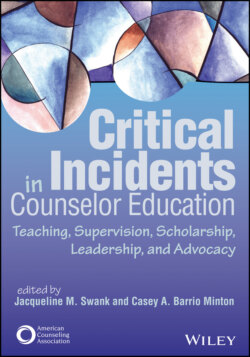Читать книгу Critical Incidents in Counselor Education - Группа авторов - Страница 72
Considerations for Faculty From Marginalized Communities
ОглавлениеFaculty members from marginalized communities are often expected to be the voices of diversity in counseling programs. Counselor educators from marginalized communities are often expected to teach courses and serve on committees related to diversity and social justice—yet this can be a risky proposition. Faculty of color typically receive worse course evaluations than their white male peers, and courses that explore issues of diversity and inclusion also tend to yield worse teaching evaluations (Perry et al., 2015). Given that Professor Malcom is a person of color and is teaching a course on diversity it is likely that he will receive worse course evaluations. This is one reason why his mentors advised him against teaching multicultural counseling. Because course evaluations are typically considered as part of promotion and tenure, Professor Malcom should be concerned about how low marks might impact his professional advancement. I am not suggesting that faculty from marginalized communities not teach multicultural counseling if it is an area of passion and expertise for them. However, I am cautioning counselor educators to consider how being a member of a marginalized group and teaching a course on diversity might negatively impact their course evaluations and hurt them in terms of attaining tenure and promotion.
